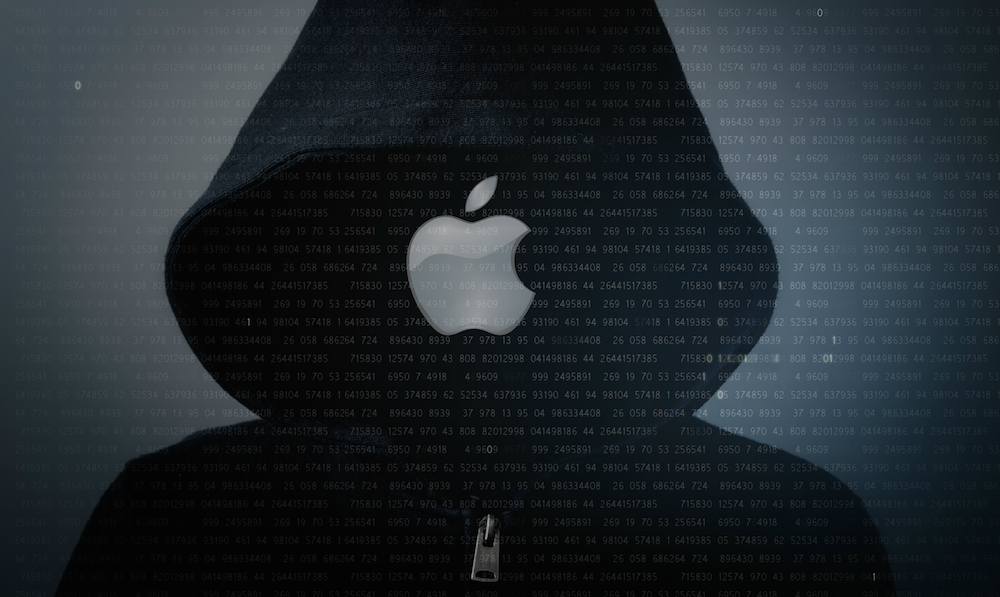The myth of the Mac has come crashing down under the weight of Apple’s ample market share, and I’ll be the first to admit—I take a lot of joy in the fact that this supposedly premium computer brand is finally getting its comeuppance (full disclosure: I’ve owned multiple Apple devices over the years, and am typing this on a 2014 MacBook Pro that’s had more than its share of issues and is currently overheating like an ovulating dog at senior prom).
Here’s the deal: for years, we’ve been hearing that Apple products are unhackable, unbreachable, and largely uncrashable. Use only Apple-approved software and hardware components, and you’ll never have a problem. All your data will stay secure, all your programs and apps will load quickly and run smoothly; the products can even take more of a physical beating than the competition and still keep plugging away. iPhone fragility put that last claim to rest years ago. I’ve never owned an iPhone myself, but given the number of times family and friends have taken to social media with their shatter-screen woes, it appears they break more frequently than Teamsters. Still the other myths regarding Apple’s software invulnerability have persisted.
Until now.
To be fair, you have to rely on a bit of anecdotal evidence to see a significant challenge to the “uncrashable” part of the Apple mythos; as far as I know, Apple doesn’t publish statistics regarding the number of times users have screamed in frustration at the spinning rainbow wheel of death that just won’t go away. My personal experience tells me that much of the software that used to make Apple king for many consumers – iMovie, iTunes, each generation of the Mac OS – has grown increasingly buggy and crash prone. Beyond that there’s a clear growth in the number of problems and complaints on popular Mac forums. There’s also the fact that, while researching this article, Google wanted to autocomplete my search of “Apple products” with the words “break,” “made to break?” and “suck.” Like I said, anecdotal.
It’s the software’s vulnerability to attack that’s showing the biggest change, though. Recently Bit9 and Carbon Black issued a report identifying 2015 as “the most prolific year in history for Mac OSX malware. Then, a group of white hat hackers managed to snag a million-dollar bounty offered by Zerodium for developing a technique to remotely hack any iPhone or iPad simply by getting users to visit a specific website. Around the same time, Claud Xiao of Palo Alto Networks announced he had discovered a new malware infecting the Xcode compiler—the development platform created by Apple itself and used by makers of iOS apps, Mac OS programs, Safari extensions, and add-ons/programs for basically all Apple products and operating systems. 3,500 iOS apps that made it to the App Store are known to be infected, and that’s just the tip of the iceberg (or the stem of the apple?).
When fewer than 1% of the computer-owning public had ever even handled an Apple device, there wasn’t much incentive to find a backdoor into their operating system. The fact is that the iPhone has helped Apple break corporate revenue records by selling as many units as other entire industries (more iPhones were sold in the past quarter than TVs – all brands of TVs combined). With the iPad and Mac computers also capturing significant market share, the game has changed.
So what’s changed? Has Apple truly gotten worse as it’s diversified, allowing its software supremacy to slip while the company tries to dominate the music industry, considers breaking into TV and film production like Amazon, is increasingly engaged in professional-oriented products in healthcare and other industries, and so on? Possibly, but there’s also a simpler explanation: Apple’s products and systems finally have enough presence in the market for hackers to hack them, and for people to start paying attention when vulnerabilities are exposed.
It’s not that Apple is necessarily worse than any other major computer manufacturer or software developer out there, it’s just that they had such a height to leap from. Once their market share grew large enough, gravity was bound to kick in—even Newton could have told you that the apple always falls from the tree.

